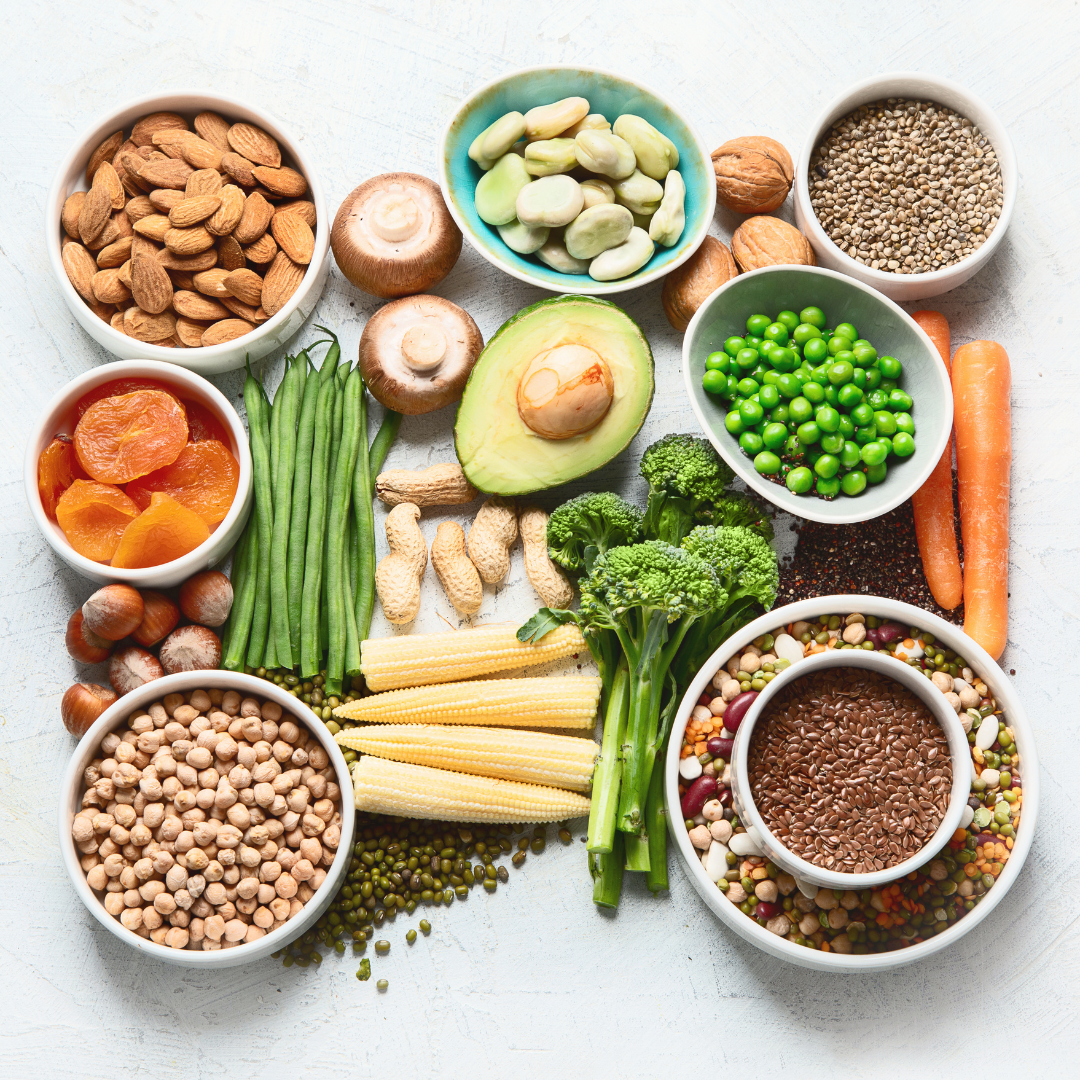5 Essential Tips for Better Gut Health
Your gut health is a crucial component of your overall well-being, influencing everything from digestion to mental health. Focusing on gut-friendly practices can improve digestion, reduce inflammation, and boost your immune system. Here are five simple tips for better gut health and digestion that you can implement today.
1. Increase Your Plant-Based Intake
One of the most powerful ways to support your gut is by diversifying your diet with plant-based foods. If you’re looking for tips to improve gut health, aim to eat at least 30 different types of fruits, vegetables, whole grains, legumes, nuts, and seeds each week. A varied plant-based diet provides your gut with the fibre and nutrients it needs to thrive.
Why It Matters: A diverse diet feeds the beneficial bacteria in your gut, promoting the production of short-chain fatty acids that reduce inflammation, improve digestion, and support your immune system. Incorporating fermented foods like kimchi, sauerkraut, and yoghurt can further enhance gut health by introducing beneficial probiotics.
Simple Tips to Get Started:
- Start Small: Add a new fruit or vegetable to your meals weekly.
- Explore New Recipes: Try different cuisines that emphasise plant-based ingredients, such as Mediterranean or Asian dishes.
- Embrace Herbs and Spices: These add flavour and count towards your plant diversity goal.
Caution: Increase Fibre Slowly
While increasing your fibre intake is beneficial, it’s important to do so gradually. Jumping straight into a high-fibre diet can cause bloating, gas, and digestive discomfort. To avoid these issues, increase your fibre intake slowly, allowing your gut time to adjust.
Simple Tips to Get Started:
- Introduce New Fibres Gradually: Add one new fibre-rich food at a time, such as legumes or whole grains.
- Stay Hydrated: Drinking plenty of water helps fibre move smoothly through your digestive system.
- Listen to Your Body: Pay attention to how your body responds and adjust your intake as needed.

Want to boost your gut health? Learn how eating a variety of plant foods can make a difference in our post, The Power of 30: How Eating a Variety of Plant Foods Can Transform Your Gut Health.
Your Gut Health Guide
Nikkie Windsor
Certified Nutritionist / Health Coach / Breathwork Coach
With over 35 years of living with Crohn’s disease, Nikkie brings personal insight and professional expertise to her work as a Gut Health Nutritionist. She helps professionals regain their energy, reduce gut-related symptoms, and thrive in their careers using holistic, personalised approaches.

A Quick and Easy Way to Add Fibre!

Get 20% off with code “guthealth20”
Please note: I may receive a small commission if you purchase through this link at no extra cost to you.
2. Move More – Exercise for Gut Health
Physical activity isn’t just good for your muscles—it’s also great for your gut. Regular exercise can help regulate your digestive system, reduce inflammation, and boost your mood. Activities like walking, yoga, and strength training are particularly beneficial for better gut health.
Why It Matters: Exercise promotes the growth of diverse gut bacteria, supports gut motility, and can alleviate symptoms of digestive distress such as constipation and bloating.
Simple Tips to Get Started:
- Incorporate Movement Daily: Even short bursts of activity, like a 10-minute walk, can make a difference.
- Try Gut-Friendly Workouts: Activities like yoga can stimulate digestion and reduce stress, both benefiting your gut.
Yoga Moves for Better Digestion:
Let’s Get Things Moving!
Feeling a little sluggish in the tummy? Yoga to the rescue! Here are some simple yet effective yoga poses to give your digestion a little boost:
- Cat-Cow Pose: Stretch and massage those digestive organs!
- Seated Forward Bend: Squeeze and release to get things flowing.
- Supine Twist: Ring out the tension and say hello to a happy gut.
But the star of the show? Wind-Relieving Pose (yep, it’s exactly what it sounds like!).
How to do it:
Lie on your back, hug one knee to your chest, and gently press it against your belly. Feel the relief? Now switch legs, or go wild and hug both knees in. This pose helps release trapped gas, so you can feel light and breezy in no time!
Pro Tip: Pair this with some deep breaths, and you’ll be floating on cloud nine. Namaste to happy digestion!
3. Rest Well – The Gut-Sleep Connection
Quality sleep is essential for improving gut health. Poor sleep can disrupt the gut microbiome and exacerbate digestive issues. Your body needs consistent, restful sleep to maintain the gut-brain axis—a two-way communication line that influences both gut and mental health.
Why It Matters: Sleep supports the production of melatonin and serotonin, which help regulate both sleep and digestion. A disrupted sleep cycle can lead to imbalances in your gut flora, affecting your overall health.
Simple Tips to Improve Sleep:
- Maintain a Consistent Sleep Schedule: Go to bed and wake up at the same time every day, even on weekends.
- Reduce Screen Time Before Bed: Avoid bright screens and blue light at least an hour before sleep to help regulate your circadian rhythm.
- Create a Restful Environment: Keep your bedroom cool, dark, and quiet, and consider using a white noise machine if needed.

Curious about the gut-sleep connection? Explore more in my post, The Gut-Sleep Connection, where I cover how your gut impacts sleep, what sleep procrastination is, and tips for better rest.
4. Manage Stress – The Gut-Stress Connection
Chronic stress can wreak havoc on your gut, disrupting digestion and altering the balance of gut bacteria. The gut-brain axis plays a significant role in this relationship, with stress impacting gut function and gut health influencing stress levels.
Why It Matters: Stress reduces the production of digestive enzymes, alters gut motility, and can lead to conditions like irritable bowel syndrome (IBS). Managing stress is crucial for maintaining a healthy gut.
Simple Tips to Manage Stress:
- Practise Breathwork: Simple techniques like diaphragmatic breathing or 4-8 breathing can activate the vagus nerve, promoting relaxation and gut health.
- Incorporate Mindfulness: Techniques such as meditation or journaling can help you manage stress and reduce its impact on your gut.
- Get Support: Don’t hesitate to seek professional guidance or support groups if stress feels unmanageable.

Want to learn more? Delve deeper into how stress affects gut health in my post, How Stress Affects Gut Health: Explore the Gut-Brain Connection.
5. Stay Hydrated
Hydration is vital for digestion and overall gut health and digestion. Water helps break down food, absorb nutrients, and keep the digestive system moving smoothly.
Simple Tips to Stay Hydrated:
- Carry a Water Bottle: Make it a habit to sip water throughout the day.
- Add Flavour: If plain water isn’t your thing, try adding slices of fruit, herbs, or a splash of natural juice.
- Monitor Your Intake: Aim for at least 8 cups of water a day, adjusting for your activity level and environment.
Love Your Gut, and It Will Love You Back
Your gut is central to your health, and by following these five tips, you can support its function and improve your overall well-being. Start small, be consistent, and listen to your body. If you’re ready to dive deeper into your gut health journey, join my Facebook Group for more tips and support and to participate in our upcoming Fibre Challenge!
Take Action Now!
Connect with others, get your questions answered, and participate in challenges that make healthy living fun and achievable. Let’s create a supportive space where you can share your successes, ask questions, and stay motivated on your gut health journey.
I’d love to hear from you! Leave a comment on the blog post with your thoughts, questions, or personal experiences, and let’s keep the conversation going.





Thanks JG for your wise words, it’s always good to have a reminder. Ben has been making sauerkraut since your course so we usually have a supply.
We are trying to encourage our son to make it and spread the word.
I’m doing all this and I’m feeling much better.
Thank you Miranda! I’m thrilled to hear that Ben has been keeping up with the sauerkraut-making after the course—such a fantastic way to support gut health! It’s great that you’re encouraging your son to get involved and spread the word, too.
I’m so glad to hear that you’re feeling much better! Keep up the amazing work, and if you ever need any new ideas or recipes, feel free to reach out.